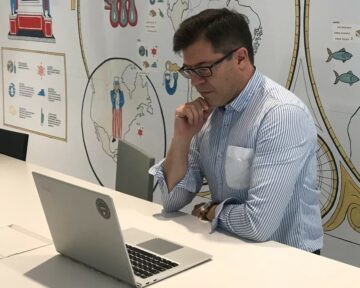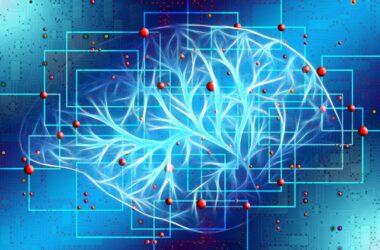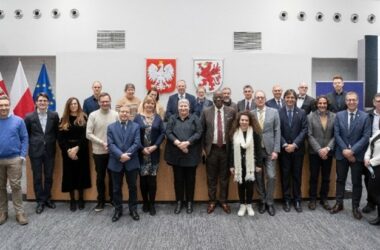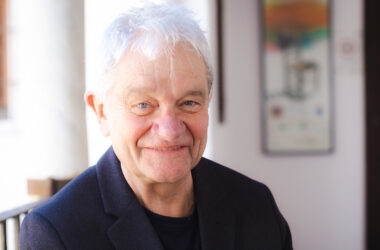
The professor of Computer Engineering and Information Systems at the Pablo de Olavide University, José Luis Salmerón, has created a machine learning tool applied to the health sector that not only contributes to the diagnosis and treatment of diseases, but also maintains the patient’s privacy, since it is not necessary to share their data. It is a tool designed for cancer patients and the UPO scientist is currently adapting it to apply it in cases of COVID-19.
Automatic learning or machine learning identifies patterns between data of different nature and predicts behaviours through algorithms with the ability to learn and evolve based on their own experience. In the field of health, it is about the computer’s ability to learn and reach conclusions, to provide solutions to specific problems and to generate knowledge from the information provided by huge amounts of biological data.
“The technique developed allows the artificial intelligence algorithms, i.e. the ‘brain’ of this artificial learning software, to learn from different hospitals without having to share patients’ personal and medical data. In other words, the information from each hospital does not include private and personal data, but only partially trained local models in which traceability to specific patients is not possible. Models learn from patient data, but that data is not shared”, Salmerón explains.
Thus, patients’ privacy can be preserved and legal constraints regarding confidential data can be fulfilled, as well as a greater accuracy in the diagnosis and diseases treatments can be achieved, as the system includes a higher number of cases to learn about. “We must consider that there is usually not a sufficient volume of data in a single hospital for artificial intelligence models to learn and predict with the required accuracy. However, using this technique, we can certainly make artificial intelligence models learn from the data of many hospitals”, José Luis Salmerón says.
The UPO professor José Luis Salmerón has a long experience dealing with artificial intelligence projects applied to medicine, mainly projects made by the McGill University, in Montreal and Laval University, in Quebec, as diagnostic evaluation of pathologies to support primary health care or intensive care medicine in the emergency department.
Jose Luis Salmerón, in addition to being Professor of Computer Engineering and Information Systems, is Director of the Data Science Lab. He has a PhD in Computer Science and a PhD in Economics and Business Administration, and collaborates with the World Class Center for Analytics in Tessella (Altran group, part of Capgemini), a company focused on advanced analytics and artificial intelligence as the Principal Data Scientist. He is also a senior research associate at the Autonomous University of Chile (Chile). It has numerous technology transfer projects for companies on Information Technology, Artificial Intelligence, Automatic Learning, Deep Learning and Big Data. He is actively involved (as leader and team member) in several research projects, funded by national and international organisations, including the European Union and national R&D programmes. He participates in professional and EU projects, working with the development of intelligent algorithms and new methodologies based on soft computing, artificial intelligence techniques for complex diagnostics, big data, data analysis and decision support. He is also a member of the editorial board of the journal Applied Soft Computing and a reviewer for major journals and conferences related to intelligent systems and expert systems. His works have been published in IEEE Transactions of Fuzzy Systems, IEEE Transactions on Cybernetics, IEEE Transactions on Software Engineering, Expert Systems with Applications, Applied Soft Computing, Neurocomputing, Communications of the ACM, Journal of Systems and Software, Computer Standards & Interfaces, Interacting with Computers, among others. He is the vice president of the International Association for Gray Systems and Uncertainty Analysis. As a lifetime member of ACM, he currently conducts researches in Deep Learning, eXplainable Artificial Intelligence, Big Data and Federated Learning.





